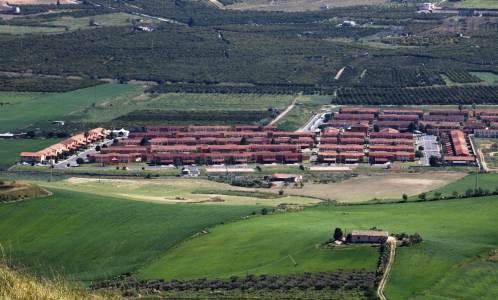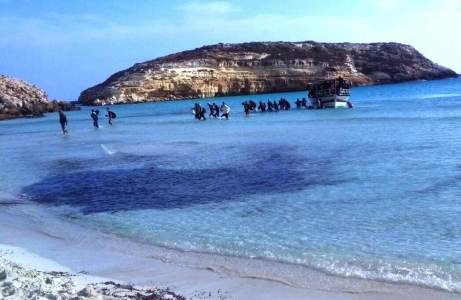Torture, rape and slavery in Libya: why migrants must be able to leave this hell
The report features harrowing testimonies, gathered by Oxfam and its partners, from women and men who arrived in Sicily having made the dangerous crossing from Libya. Some revealed how gangs imprisoned them in underground cells, before calling their families to demand a ransom for their release. A teenager from Senegal told how he was kept in a cell which was full of dead bodies, before managing to escape. Others spoke of being regularly beaten and starved for months on end.
Oxfam and its partners are calling on Italy and other European member states to stop pursuing migration policies that prevent people leaving Libya and the abuse they are suffering.
158 testimonies, of 31 women and 127 men, gathered by Oxfam and MEDU in Sicily, paint a shocking picture of the conditions they endured in Libya:
All but one woman said they had suffered from sexual violence
74% of the refugees and other migrants said they had witnessed the murder and /or torture of a travelling companion
84% said they had suffered inhuman or degrading treatment, extreme violence or torture in Libya
80% said they had been regularly denied food and water during their stay in Libya
70% said they had been tied up
Roberto Barbieri, executive director of Oxfam Italy, said:
“These testimonies paint a horrifying picture of the lives of refugees and other migrants in Libya. They are a damning indictment of Europe’s efforts to keep people from escaping violence, slavery and even death.
“These are people who are escaping war, persecution and poverty – and yet in Libya they encounter another hell.
“People must come first: the EU should provide safe routes for people to come to Europe and have access to a fair and transparent processes for claiming asylum.”
Due to a lack of safe and regular routes into Europe for refugees and other migrants, the central Mediterranean route from Libya to Italy has become the major port of entry for those trying to reach Europe. More than 180,000 people arrived in Italy via this route in 2016. Over 95,000 people have already arrived so far this year.
European member states have been pursuing policies preventing people from leaving Libya so they don’t make it to Europe’s shores. These actions expose refugees and other migrants to suffering and death, and this must end.
Notes to editors
- Spokespeople for interviews are available in Sicily, Brussels and London.
- The media briefing, “‘You aren’t human any more’: Migrants expose the harrowing situation in Libya and the impact of European policies”, contains a selection of testimonies. Read the full report.
- Photos related to Oxfam’s work with migrants in Italy are available for free use by the media.
- The media briefing is based on two sets of interviews: Borderline Sicilia collected 100 interviews between July 2016 and April 2017 in Sicily, and MEDU collected 158 interviews between October 2016 and April 2017 in Sicily. While the report contains testimonies from both sets of interviews, MEDU has extracted data on the type of abuses, which migrants have experienced themselves or have witnessed.
- According to the United Nations, 1.3 million people in Libya are in need of humanitarian assistance. They also highlight that “migrants and refugees transiting or staying in Libya face particularly dire living conditions and are victims of physical and mental abuses, discrimination, forced and unpaid labour, financial exploitation, gender based violence, arbitrary arrest and detention, and marginalization.”
- Oxfam Italy provides assistance to new arrivals, including food, clothes, shoes, and personal hygiene kits as well as longer term psychological and legal support. Oxfam Italy helps asylum seekers find accommodation, learn Italian, and provides them with cash to meet their basic needs.



